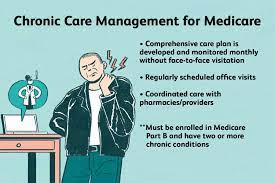

Chronic illness coverage:
Comprehensive insurance providing financial support for extended periods when individuals face chronic health conditions, ensuring coverage for medical expenses and related care.
Long-term illness insurance:
Insurance specifically designed to address and financially assist individuals dealing with illnesses that require prolonged medical attention, offering sustained support.
Persistent health condition insurance:
Coverage for ongoing health conditions, ensuring continuous financial assistance for medical treatments and associated costs.
Prolonged illness protection:
Insurance protection offering financial support during extended periods of illness, helping to cover medical expenses and other related needs.
Chronic disease insurance:
Insurance tailored to address the financial challenges associated with chronic diseases, providing assistance for ongoing medical care and treatment.
Ongoing health condition coverage:
Insurance coverage that remains in effect over time, offering financial support for individuals dealing with continuous health conditions and medical needs.
Extended illness insurance:
Insurance designed to provide extended financial support during periods of illness, ensuring coverage for medical treatments and related expenses.
Sustained health issue protection:
Insurance protection that remains effective over the duration of a sustained health issue, offering financial assistance for ongoing medical care.
Long-lasting health condition insurance:
Insurance coverage tailored to address the needs of individuals facing health conditions that persist over an extended period, providing long-term financial support.
Chronic care insurance:
Comprehensive insurance covering the care and support needed for individuals dealing with chronic health conditions, ensuring financial assistance for ongoing healthcare requirements.
| Car Insurance |
| Homeowners Insurance |
| Life Insurance Plan |
| Commercial Insurance Brokers |
| Pet Insurance Plan |
| Renters Insurance Plan |
| Best Credit Cards |
| AAA Trip Interruption |

Is it possible for individuals with chronic illnesses to obtain life insurance?
A chronic condition or illness can impact your life in so many ways. You may be wondering if you can still get health insurance – and what it is going to cost you.
People with chronic illness can and do get approved for life insurance policies. The key is finding the right kind of life insurance and showing that you are managing your chronic illness as much as possible.
What types of insurance are available for people with chronic illness?
In general, the same policies that are available for healthy people may be available for those who suffer from chronic illness. Unless the illness is terminal, or drastically reduces your life expectancy, you may be able to qualify for either a term life or a permanent life insurance policy.
What types of insurance are available for people with chronic illness?
In general, the same policies that are available for healthy people may be available for those who suffer from chronic illness. Unless the illness is terminal, or drastically reduces your life expectancy, you may be able to qualify for either a term life or a permanent life insurance policy.
Life insurance riders for people with chronic illness
Individuals facing chronic illnesses might find it worthwhile to explore life insurance riders. These riders provide additional protections or benefits to your policy, particularly in the event that your condition deteriorates.
A frequently utilized rider is the terminal illness rider, enabling you to access a portion of your death benefit if you receive a diagnosis of having less than a year or so to live. This feature is also referred to as an accelerated death benefit. Investigate terminal illness riders available from Fidelity Life for further details.
What qualifies as a chronic illness?
As per the Centers for Disease Control and Prevention (CDC), a chronic illness is one that persists for at least a year and necessitates continuous medical care. Not only does it affect your health, but it also imposes limitations on the routine activities of daily living, significantly influencing your overall quality of life.
In the United States, prevalent chronic illnesses include cardiovascular disease, diabetes, cancer, asthma, and Parkinson’s disease. Health conditions stemming from smoking and alcohol consumption are also categorized as chronic illnesses.
Q: Is it worth having critical illness insurance?
Ans: It can assist in covering expenses that may not be covered by medical insurance. Moreover, additional expenses associated with recovery, such as childcare, transportation, and grocery delivery, are often your responsibility. Critical illness insurance can offer financial support to help you meet these unforeseen costs.
Q: What are the disadvantages of critical illness insurance?
Ans: There are drawbacks to opting for a critical illness insurance plan, including limited coverage amounts, exclusion of pre-existing conditions, and rising premium costs with age. The majority of plans typically have a coverage limit of $50,000, which may seem substantial initially
Q: What is considered chronic illness for insurance?
Ans:
In insurance terminology, a chronic illness is typically characterized as a lasting condition that hinders an individual from engaging in at least two of the six fundamental "activities of daily living," which include ambulating, continence, and feeding.
Q: Which is better life insurance or critical illness?
Ans: Generally, critical illness policies conclude once the payout is issued. If you happen to pass away after the policy termination, no additional funds will be disbursed. Life insurance serves this purpose. If you wish to guarantee that your beneficiaries receive an additional lump sum after your demise, it is advisable to consider taking out a separate life insurance policy as well
Q: Does critical illness insurance cover all cancers?
Ans:
In brief, yes, cancer is a primary condition covered by critical illness insurance. However, there are exceptions based on the type and stage of the cancer diagnosis, which determine the eligibility for coverage and the potential amount that can be claimed.
Q: How many months is chronic illness?
Ans: The term "chronic" is frequently used when referring to diseases with a duration lasting more than three months. Typical chronic diseases encompass conditions like arthritis, asthma, cancer, COPD, diabetes, and viral diseases such as hepatitis C and HIV/AIDS
| Car Insurance |
| Homeowners Insurance |
| Life Insurance Plan |
| Commercial Insurance Brokers |
| Pet Insurance Plan |
| Renters Insurance Plan |
| Best Credit Cards |
| AAA Trip Interruption |

| Car Insurance |
| Homeowners Insurance |
| Life Insurance Plan |
| Commercial Insurance Brokers |
| Pet Insurance Plan |
| Renters Insurance Plan |
| Best Credit Cards |
| AAA Trip Interruption |
© Insurance Life Plan. All Rights Reserved. POWERD BY ![]()